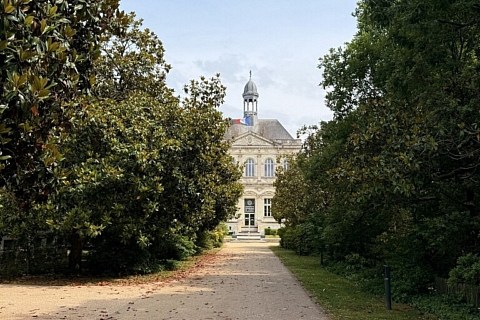Graphic by: Lily Huynh
Founded on August 30, 1836, by visionary brothers J.K. and A.C. Allen, Houston has grown from a small settlement along Buffalo Bayou into a vibrant metropolis. From its strategic beginnings, the arrival of the first railroad in 1853 and its role in the cotton industry, to its growth as a haven for Civil War refugees, Houston has always been a city on the move. Whether you’ve lived here all your life or are just setting roots, understanding Houston’s rich history offers a deeper appreciation for the place we now proudly call the Bayou City.
Named after General Sam Houston, the hero of the Battle of San Jacinto and the first president of the Republic of Texas, the city’s history is deeply intertwined with the early days of Texas itself. The Allens, originally from New York, saw potential in the land near the bayou and set the foundation for what would become one of the most diverse and dynamic cities in the nation.
By 1913, Houston’s cultural attractions expanded significantly with the founding of the Grammy Award-winning Houston Symphony. For over a century, the Symphony has played a central role in the city’s artistic community, becoming one of America’s oldest performing arts organizations. With celebrated leaders like Ernst Hoffmann (1936-1947), Efrem Kurtz (1948-1954) and Hans Graf (2001-2013), the Symphony not only attracted local audiences but also gained international acclaim. Its debut at Carnegie Hall on March 11, 1965, marked the beginning of a series of 16 performances at the world-renowned venue.
While Houston’s symphonies, art galleries and museums contribute to its cultural richness, the city’s spirit is equally embodied in the Houston Livestock Show and Rodeo. Originating in the early 1930s as the Houston Fat Stock Show, it quickly introduced the Wild West’s charm with the addition of the rodeo events in 1938. This shift led to a surge in popularity, with thousands traveling to witness the craft of horsemanship, bull riding and roping skills. In 1974, after a fire destroyed the Sam Houston Coliseum, the legendary Astrodome, the world’s first domed stadium, became the new home for the rodeo. What began as a modest livestock show now attracts millions of visitors from around the globe, establishing itself as an internationally acclaimed event and a cornerstone of Houston’s civic life.
Houston’s rise as the center of space exploration began in 1961 when NASA announced the city as the location for its Manned Spacecraft Center, later renamed the Lyndon B. Johnson Space Center. This marked the beginning of Houston’s pivotal role in the space race finalized in 1969 when the word “Houston” was first spoken from the lunar surface by astronaut Neil Armstrong. The establishment of the Texas Medical Center in 1943 also gave rise to Houston’s commitment to innovation, marking it as a leader in both space exploration and medical research.
The city’s rich history and culture have also produced an array of famous personalities who left their mark. Beyoncé Knowles, a global music icon, was born and raised in Houston. Howard Hughes, the legendary entrepreneur, aviator and filmmaker, also rose from this vibrant city. The list continues with Barbara Jordan, an impactful lawyer, politician and civil rights leader, who was the first African American woman from the South elected to the U.S. House of Representatives. These figures, among others, have shaped Houston’s identity as a prominent city of ambition and influence.
From its humble beginnings to its status as a global city, Houston’s story is one of resilience, diversity and a relentless pursuit of progress. Whether through the arts, space exploration, medical innovations or the rodeo, Houston continues to captivate the world with its unique blend of Southern charm and metropolitan energy. As the city looks to the future, it remains a beacon of hope and innovation, while continuously growing and evolving by honoring its rich heritage.





Recent Comments